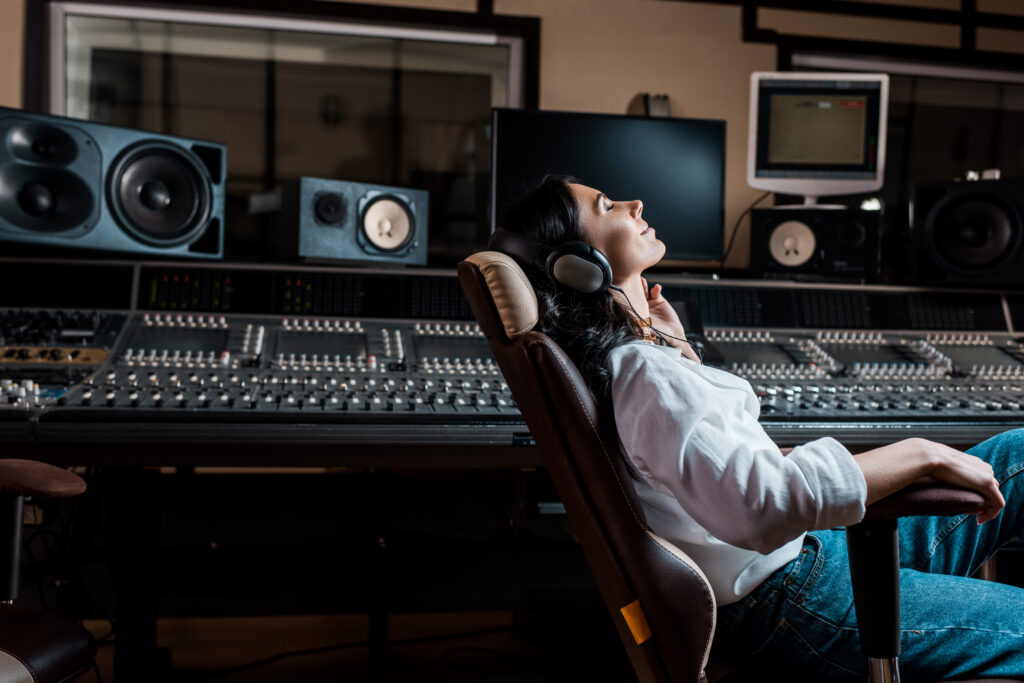
By Just Rijna from StringKick
Learning to play music today is more convenient than ever. YouTube is filled with free tutorials and lessons that can help you learn almost any song you want. Compare that to what musicians did a few decades ago: they’d painstakingly work out how to play a song by carefully listening to a record or a tape. Clearly, we have it a lot better today!
But there is a downside to having YouTube and other resources just a few clicks away. Learning songs by ear is a great way to train your ears, which many musicians are now missing out on. And because it’s no longer necessary to learn songs by ear, many players skip over ear training altogether.
In this article, I’ll explain why that’s a mistake. We’ll explore two reasons why training your ears is important, and I’ll show you how you can best get started.

Why do you like the music you like? It’s a simple question, but not easy to answer. Most listeners without trained ears will focus on the parts that are easy to hear, such as vocals and guitar riffs. But by training your ears, you can learn to perceive music in much greater detail. The shifting harmonies… How the melody develops… How a bass line brings a track to life…
Learning to hear in more detail will deepen your appreciation of your favourite music, as you start to notice all the intricacies that make it so great. You might even start to appreciate artists or genres that didn’t appeal to you before!
This is also one of the many reasons why it is critical to protect your hearing. You want to be able to enjoy music down to the smallest detail today and for years to come. Look for hearing protection designed specifically for musicians that reduces volume without distorting the sound, such as Minuendo.
Many musicians hit a certain plateau after a couple of years. I often hear from guitarists who can play many songs and have picked up some theory along the way. But somehow they don’t feel like they can actually ‘play’. Instead, they feel like they’re only memorizing which notes to play and never reached the point where they can let musical ideas flow.
What’s missing from these musicians is a solid connection between their hands and their musical minds. And that connection is developed through ear training. As you train your ears, more and more you will get a sense of freedom on your instrument to play what you hear in your head. This ability impacts pretty much every area of your musicianship: from improvisation to songwriting. It’s one of the most rewarding things you can learn as a musician.

So, we’ve discussed two important reasons to train your ears. But how do you get going?
Take your best pair of headphones and find a relaxing spot to sit. Now hit play on a song that you love and try to really listen to it. Let yourself be totally absorbed by the music. Focus and ask yourself what you’re hearing. How many instruments do you hear? Pick one of them. What is it playing? Try to follow it from the start of the track to the very end, note by note. Next, do the same for another instrument.
As you listen with total focus, you’re bound to discover things you never really noticed before. You can do this anytime you listen to music: give it your full attention and notice every little detail.
I recommend the approach that all the greatest musicians in music history took: learn songs by ear. I know this can seem a little intimidating at first. The trick is to start simple. Take a melody that you know well, that’s slow and doesn’t have too many notes.
Music teachers often suggest nursery rhymes for this. But children’s songs are often surprisingly complicated, not to mention not very inspiring to play. Instead, I’d recommend songs with simple riffs or melodies.
Examples include:
There’s a lot to be said about figuring out a song by ear, but the basics are simple. Listen closely to the first note. Sing or hum that note. Then find it on your instrument. This will take time the first time you do it. But you’ll be surprised at how much better you get at this within a few weeks of practice.
Ear training can transform the way you listen to, appreciate, and create music. It can help you perceive music in greater detail. It can also develop your ability to play whatever you hear in your head – a skill that impacts almost every area of your playing. In short, ear training can open the door to a more meaningful and rewarding musical path. So give it a shot!
Just Rijna is the founder of StringKick, an online training academy for guitar players. StringKick is focused on helping you to train your ears, learn music theory and develop your musicality, all with the goal of making your musical journey more fun and fulfilling.
Thanks for reading our article on Why ear training is important and how to get started! We at Soundbrenner are dedicated to helping musicians stay focused on what truly matters: their music. By creating innovative devices, such as Soundbrenner Pulse and Core, our goal is to deliver the best possible practice experience for musicians. Click here to find out more.
Got a question about Soundbrenner wearables? Reach out to us at [email protected], we’re happy to help!